Services Offered
Legal Support Assistance
Closed, opens Monday at 9:00 AM.
Hours
| Monday | 9:00 AM – 5:00 PM |
| Tuesday | 9:00 AM – 5:00 PM |
| Wednesday | 9:00 AM – 5:00 PM |
| Thursday | 9:00 AM – 5:00 PM |
| Friday | 9:00 AM – 5:00 PM |
| Saturday | Closed |
| Sunday | Closed |
Other Helpful Services Nearby
Within 0.7 miles
DVOP, L. L. C. - Domestic Violence Offender ProgramNo address available
counseling servicesother
Within 0.7 miles
Sexual Trauma Awareness and Response (STAR)No address available
counseling serviceslegal support assistanceotherother support
Within 0.8 miles
Nurse Family Partnership – Ascension, East Baton Rouge, East Point Coupee, Feliciana, Iberville, West Baton Rouge, West Feliciana353 North 12th Street, Baton Rouge, LA 70802
counseling servicesgeneral healthcareother counseling optionsparenting classes
Within 3.7 miles
**Healing Place Church - North Campus Single Moms Group4829 Winbourne Avenue, Baton Rouge, LA 70805
churches and religious organizationspeer to peer supportsingle mom support groupssupport groups for single pregnant women
Within 6.0 miles
Lean On MeNo address available
4.3
case managementclothing assistancecounseling servicesfinancial support
Within 6.8 miles
Greater King David222 Blount Road, Baton Rouge, LA 70807
4.7
churches and religious organizationspeer to peer supportsingle mom support groupssupport groups for single pregnant women
Within 10.3 miles
Embrace Grace at St. Alphonsus Liguori Catholic Church14040 Greenwell Springs Road, Greenwell Springs, LA 70739-3302
4.8
baby showerschurches and religious organizationspeer to peer supportsingle mom support groups
Within 11.9 miles
**Healing Place Church - Single Moms19202 Highland Road, Baton Rouge, LA 70809
4.8
churches and religious organizationspeer to peer supportsingle mom support groupssupport groups for single pregnant women
Within 16.0 miles
Bethany Church - Livingston28115 Juban Road, Denham Springs, LA 70726
4.9
support groupschurches and religious organizationspeer to peer supportsingle mom support groups
Have Questions About Sex, Pregnancy, and More?
Ask Our Confidential Chatbot!

